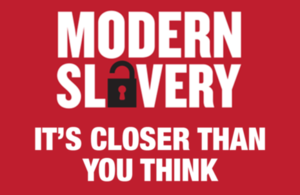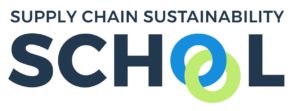Modern Slavery
Modern Slavery can take many forms including the trafficking of people, forced labour, servitude and slavery. Construction remains high risk particularly in terms of forced labour. Employers and most notably companies engaging workers through gangs and labour agencies must be vigilant. It is estimated that there are approaching 140,000 people currently impacted by Modern Slavery in the UK.
What are the Risks of Modern Slavery in Construction?
Construction, most notably forced labour, remains one of the highest risk areas in terms of modern slavery in the UK, it is often confused with right to work, but someone can be legally working in the UK, and still be subject to coercion. Modern Slavery in construction is often (but not exclusively) linked to migrant workers and labour gangs (which account for around 22% of the workforce in the finishes and interiors sector). New Immigration rules, whilst requiring more onerous Right to Work checks, may heighten risk of Modern Slavery . This report by the Association of Labour Markets explores this new dynamic.
What are your legal obligations under the Modern Slavery Act?
The Modern Slavery Act makes it a criminal offence for a person or organisation to engage in any form of ‘modern slavery’ practices. It requires larger organisations (with an aggregate annual turnover not less than £36m) to publish an annual statement detailing the steps they have taken to ensure slavery and human trafficking is not taking place.
The Slavery and Human Trafficking Statement (the SHT statement) must cover the organisation itself – including parts of the business not based in the UK – and also its entire supply chain. The SHT Statement should be approved by the organisation’s board of directors and signed by a director (or equivalent). A link to the SHT statement should be published in a prominent place on the organisation’s website.
Organisations which do not meet the requirements of the Act are encouraged (and often required through tender processes) to produce a ‘slavery and human trafficking statement’ and encouraged to be open and transparent about their recruitment practices, policies and procedures in relation to modern slavery and to take steps that are consistent and proportionate with their sector, size and operational reach..
Modern Slavery in Construction Toolkit
You can assess your risk using the MSAT, a UK Government produced modern slavery risk identification and management tool
CIOB have collaborated with Stronger Together, an industry alliance, to provide a Toolkit to help construction businesses shape their response as they tackle modern slavery. The toolkit has been created for every construction business. There is no geographic or size limitation – organisations could be minor operations with just two to three people up to large multinationals.
CIOB Modern Slavery Toolkit (produced in partnership with Stronger Together).
FIS Members can access our Webinar on Right to Work and Modern Slavery in the finishes and interiors sector, held on the 20th May 2021 here
 FIS works in partnership with the Supply Chain Sustainability School who provides access to a selection of modern slavery resources and training freely available to support the construction supply chain.
FIS works in partnership with the Supply Chain Sustainability School who provides access to a selection of modern slavery resources and training freely available to support the construction supply chain.
Additional Support
The CIOB examined the issue in their 2015 report Modern Slavery: The Dark Side of Construction which called for greater recognition of migrant workers and highlighted the plight made by millions of construction workers across the globe.
Building A Fairer System: tackling modern slavery in construction supply chains – In consultation with a number of businesses and NGOs, the CIOB examined the root causes of slavery and set out priority actions for moving the industry towards greater transparency.
Government’s Modern Slavery Toolkit – Brings together documents and promotional material related to the government’s work to end modern slavery.
Impact on Human Trafficking of New UK Immigration System – a Report by the Association of Labour Providers.
Stronger Together – Stronger Together deliver sector specific programmes offering specialist, in-depth practical advice to businesses within those industries on proactive measures they can take to reduce modern slavery in their business and supply chains. They are often free to companies in the construction supply chain by virtue of supplying a Stronger Together Partner.
This toolkit forms part of the FIS Sustainability Hub, which focusses on the ethical and environmental aspects of Sustainability, you can visit the hub here.
